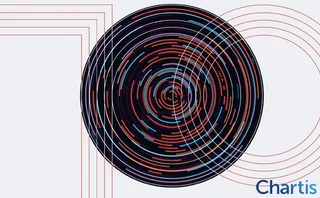
Responding to data theft
There have been several recent examples of banks accusing staff of stealing trading system code, data or customer information. What can financial institutions do to protect the intellectual property embedded in their computer systems? By Clive Davidson

On April 19, Samarth Agrawal, a former quant and trader in the high-frequency trading group at Société Générale in New York, was arrested and charged with stealing some of the bank’s most valuable proprietary computer code. The case follows similar incidents over the past 18 months, where former employees of UBS, Goldman Sachs and Citadel Investment Group, the Chicago-based hedge fund, have been
Only users who have a paid subscription or are part of a corporate subscription are able to print or copy content.
To access these options, along with all other subscription benefits, please contact info@risk.net or view our subscription options here: http://subscriptions.risk.net/subscribe
You are currently unable to print this content. Please contact info@risk.net to find out more.
You are currently unable to copy this content. Please contact info@risk.net to find out more.
Copyright Infopro Digital Limited. All rights reserved.
As outlined in our terms and conditions, https://www.infopro-digital.com/terms-and-conditions/subscriptions/ (point 2.4), printing is limited to a single copy.
If you would like to purchase additional rights please email info@risk.net
Copyright Infopro Digital Limited. All rights reserved.
You may share this content using our article tools. As outlined in our terms and conditions, https://www.infopro-digital.com/terms-and-conditions/subscriptions/ (clause 2.4), an Authorised User may only make one copy of the materials for their own personal use. You must also comply with the restrictions in clause 2.5.
If you would like to purchase additional rights please email info@risk.net
More on Technology
What is driving the ALM resurgence? Key differentiators and core analytics
The drivers and characteristics of a modern ALM framework or platform
Are EU banks buying cloud from Lidl’s middle aisle?
As European banks seek to diversify from US cloud hyperscalers, a supermarket group is becoming an unlikely new supplier
Inside the company that helped build China’s equity options market
Fintech firm Bachelier Technology on the challenges of creating a trading platform for China’s unique OTC derivatives market
AI ‘lab’ or no, banks triangulate towards a common approach
Survey shows split between firms with and without centralised R&D. In practice, many pursue hybrid path
Everything, everywhere: 15 AI use cases in play, all at once
Research is top AI use case, best execution bottom; no use is universal, and none shunned, says survey
FX options: rising activity puts post-trade in focus
A surge in electronic FX options trading is among the factors fuelling demand for efficiencies across the entire trade lifecycle
Dismantling the zeal and the hype: the real GenAI use cases in risk management
Chartis explores the advantages and drawbacks of GenAI applications in risk management – firmly within the well-established and continuously evolving AI landscape
Chartis RiskTech100® 2024
The latest iteration of the Chartis RiskTech100®, a comprehensive independent study of the world’s major players in risk and compliance technology, is acknowledged as the go-to for clear, accurate analysis of the risk technology marketplace. With its…







